
I stood before the audience, my notebook open as I prepared to read an excerpt from my novel “The Curate’s Brother“. It is a historical romance based off of Jane Austen’s novel “Persuasion”. It was one of many readings that I would do to promote my new book that year.
The moderator of our panel gestured to me and said, “I present to you our next reader, author and poet Wendy Van Camp.”
I remember blinking and tilting my head to one side, like a puppy that is not quite sure of a knock at the door. I do write poetry, but until that moment I never considered myself to be “a poet”. In those few seconds before I began my reading, I had an epiphany. The moderator was correct, I am a poet. I’ve been one for quite some time, publishing poems in several magazines and selling those poems as illustrated art prints. I even have a chapbook in the publishing pipeline. But I never thought of myself as being a poet. The irony of the moniker was not lost on me. I had to quell the laughter that threatened to bubble from within.
When I was in grade school, I remember saving money from my allowance in order to buy a notebook that had caught my fancy. It had a green cover with gold foil embellishments and the pages were smooth white paper without lines. I put the notebook in a place of honor among my growing book collection, but could not decide what to do with it. Then it hit me. I would fill the notebook with poetry. I had never written a poem before, but how hard could it be? I was already writing novels, stories filled with Tolkien style dwarves and elves or mermaids who did battle with titans. Not that anyone read the stories but my own young eyes.

I cradled my green notebook late at night and sprinkled the pages with little ideas that came to me in my dreams. After I had written a dozen poems, my younger brother swiped the book from my room, read my words and then proceeded to mock everything that I had written. I wilted in embarrassment. My parents mentioned that I shouldn’t be wasting my time writing in the first place.
I put the green notebook deep into my stacks and forgot about poetry. I continued writing my novels and dreamed about becoming a filmmaker someday. Poetry didn’t make money and was not respected. It would not be part of my life.
The years went by and after graduating college, I found myself working in television, following my dream of becoming the next big director in Hollywood. By this time, I had worked for the past five years producing and directing a half hour band showcase series called “Musician Discoveries”. Bands traveled from other states for the chance to perform on my little television studio stage and take part in the statewide distribution of my low budget, labor of love. After going through a few different hosts for the program and the threat of our studio losing its funding, I decided that it was time for a change. I purchased an expensive prosumer camera and software to edit video on my computer at home. It was time to go rogue and create television on my own terms.
I needed a new art form to work with for the new TV series. Music was great, but I was tired of it. I thought about paintings. The cliché of watching paint dry nixed that idea. Then I considered poetry. I had not written a poem since assignments in high school, but as a director I didn’t need to create the content, that was the talent’s job. Readings were dynamic, the performances would be easy to capture and the thought of shooting on location in the various coffeehouses in the city was appealing.
I put the production together and marched forth, a young intrepid filmmaker. Realty hit hard and fast. The coffeehouses would cancel my time without informing me. One went out of business and I didn’t learn about it until I arrived a few hours before shooting. Editing on home equipment was more difficult than in studio and I was never happy with the production values I could afford on my small budget.
And then, there were the poets.
Never had I worked with such unruly creatives. They were demanding, rude, and unreliable. As the months went by, I sunk lower and lower into depression. No matter what I did, I could not get the show off the ground. In the end, I only produced around a dozen programs before I closed my doors. I swore to myself that I would never work with poets again. It would be years before the ill taste caused by poets would be removed from my mouth.

After fifteen years in the television business, I found myself shifting away from the long hours and stress of production to working from my home studio. This time, I was not making video, but I had started to write books after a twenty year hiatus. Science fiction was my main genre, but as a side project I started the Austen series and since they finished early, I began to be known as an Austen author. But due to my love of science fiction, I still attended science fiction conventions.
One Friday afternoon, as rain threatened overhead and the heat outside became oppressive, I thought about finding a panel to attend so that I could be indoors and be more comfortable. I looked at the placards in front of the doorways, but it was early in the day and most of programming had not started. However, there was a single workshop available and it was located next to the area that I needed to return to in an hour or two. I ducked inside.
There were six or seven people in the room, I assumed that they were fellow convention attendees who would join me in the workshop. The placard said that this was a “Scifaiku” workshop. I had no idea what that was, but I was open to try it as long as the air conditioning worked and there was ice water available.
The instructor introduced herself and then informed me that all those people in the room were her friends that had come to support her class. They were all magazine publishers. I was the only student and she was going to teach me how to write poetry.
I immediately wondered if I could get out of the workshop gracefully, but being the only student, I didn’t want to be rude. So I sat back and watched as methods of brainstorming poems, the ideas of how haiku and science fiction could be merged and what structure to follow in writing a scifaiku poem.
Then the instructor said, “Now you will write a poem for the class.” Me? Write a poem? I hadn’t done this since high school and that was a long time ago. I could hear my brother laughing at me from my memory. I could sense the pressure of those bully poets that caused me all that pain. Yet, I had the format before me and the brainstorming techniques. How hard could it be?
I wrote my first scifaiku.

When I was done, the instructor said. “Now, I would like you to read your poem to the class.” I looked around. I was the only student. All the people in the room were publishers of poetry magazines, some of them with large followings. I stood up. I read my poem. I sat down.
The instructor said a nice few words about my attempt. Then, one of the publishers leaned over and told me that she liked my poem and wanted to publish it in her magazine. She would pay me. I took her card with shock.
That would be the first scifaiku I wrote, but not the last. I sold that poem and many more after that. I would reprint the poems in several magazines. I illustrated the poems with simple line art and that published in magazines too. Then someone suggested that I sell the illustrated poems and suddenly, I was an artist too.
Here I stand, with my notebook before me ready to read my prose. I am the author that I dreamed of being as a small child. And yes, I am a poet too. As strange as it seems to be after all the ridicule and heartache this art form has caused me, it is okay that I am a poet. A poet in spite of myself.
 About the author
About the author
Wendy Van Camp writes science fiction, regency romance, and poetry. Her writing blog No Wasted Ink features essays about the craft of writing, poetry, flash fiction, and author interviews. Her novelette, “The Curate’s Brother” is available at major online book sellers. Wendy’s short stories and poems have appeared in science fiction magazines such as “Quantum Visions”, “Altered Reality Magazine”, “Scifaikuest”, and “Far Horizons”. She has won Honorable Mention at the Writers of the Future Contest. You can join her quarterly newsletter to receive updates on her stories, workshops and appearances or find her on Medium and Twitter.
Find and follow Wendy
No Wasted Ink Blog No Wasted Ink Quarterly Newsletter
“The Curate’s Brother” Novelette Amazon author page
Medium Twitter
Wendy Van Camp on Amazon
 The Curate’s Brother is a short story about the relationship between the two Wentworth brothers as seen through the eyes of Edward Wentworth. It follows their romantic antics over one summer in 1806. This short story could be seen as a prequel to Jane Austen’s famous novel “Persuasion”.
The Curate’s Brother is a short story about the relationship between the two Wentworth brothers as seen through the eyes of Edward Wentworth. It follows their romantic antics over one summer in 1806. This short story could be seen as a prequel to Jane Austen’s famous novel “Persuasion”.
Edward Wentworth lives a quiet, structured life as a curate in the regency era village of Monkford. He spends his days ministering to the sick and downhearted, which he considers his life’s calling. His comfortable life is shaken when his elder brother, Commander Frederick Wentworth arrives on his doorstep for a visit. Frederick has returned to England after seeing action and commanding his first vessel, a prize ship won in the West Indies. He is awaiting orders and has the hope of commanding a ship of his own by the end of summer. His only goal is to pass the time with the only family he has left in England until his next assignment.
At first Edward is glad to see his brother. They have not spent time with each other for years due to his brother’s naval service. They are opposites in many ways. Frederick is bold and likes to take risks. Edward is shy and over-aware of social implications. When his brother flirts with Sally Marshall, an outgoing beauty that Edward is used to viewing as “a child”, the young curate becomes aware that his viewpoint of Sally is sorely outdated. His peaceful life is full of turmoil as he observes Sally flirting with men at public assemblies and realizes that he does not like it.
Meanwhile, Frederick finds himself a celebrity in Monkford. Word from the London papers paint him as “the Hero of San Domingo”, where he won a commendation for his quick thinking in action. The men want to hear the story of his exploits, but Frederick would rather dance with the ladies. The Commander takes an interest in shy wallflower, Anne Elliot. He pays no heed to Edward’s warnings that the girl is the daughter of a baronet and well above his station. Edward fears that no good will come of a union between his brother and the girl due to her family connections.
At the end of summer, a letter and a package arrive that will change everything for the two brothers. Which way will prevail, the bold action of the commander or the quiet manners of the curate?
Extract of Amazon review: “The author did a great job with the setting and the feel of Austen’s world. True Austen fans will not be disappointed at all.”

Tell me a story…
If you are a writer, artist or photographer…If you have a poem, story or memoirs to share… If you have a book to promote, a character to introduce, an exhibition or event to publicise… If you have advice for writers, artists or bloggers…
If you would like to be my guest, please read the guidelines and get in touch!


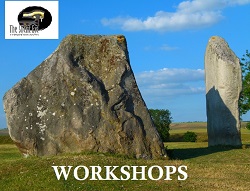

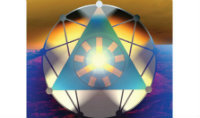

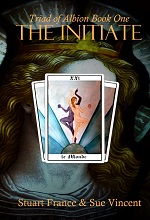


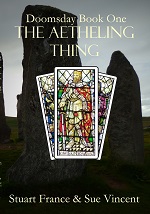
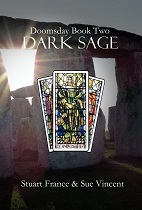
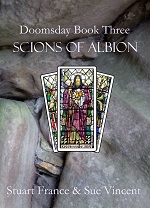
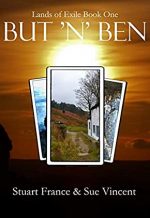






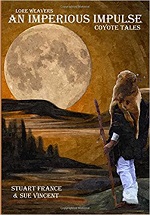


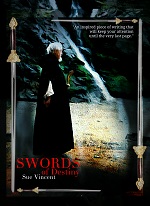

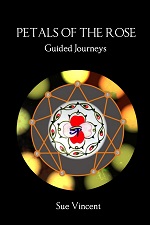

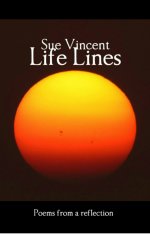
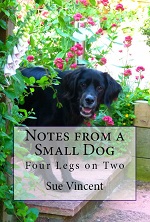



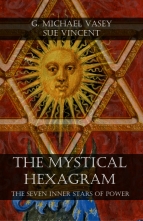

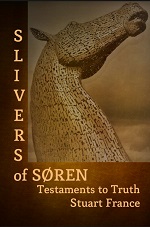


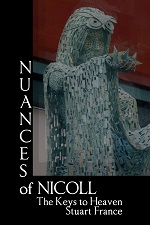


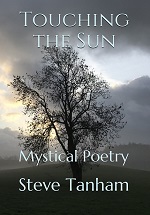

Pingback: Guest author: Wendy Van Camp – The Militant Negro™
Thank you 🙂
LikeLike
Reblogged this on Die Erste Eslarner Zeitung – Aus und über Eslarn, sowie die bayerisch-tschechische Region!.
LikeLiked by 1 person
Thanks for sharing 🙂
LikeLiked by 1 person
🙂
LikeLiked by 1 person
Reblogged this on DSM Publications and commented:
Meet guest author Wendy Van Camp in this post from Sue Vincent’s blog
LikeLiked by 2 people
What a fascinating background Wendy. It’s always nice learning more about our writing friends with these interviews. 🙂 x
LikeLiked by 1 person
That’s why I love having guests over 😉 xx
LikeLiked by 1 person
I love your guest posts Sue. Which reminds me to get my self in gear to share something again soon. 🙂 xx
LikeLike
Whenever you are ready, Debby! You are always welcome 🙂 xx
LikeLiked by 1 person
Thank you so. ❤ xx
LikeLiked by 1 person
🙂 xx
LikeLiked by 1 person